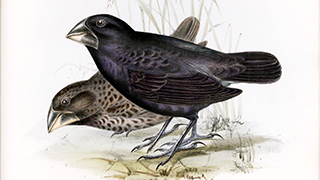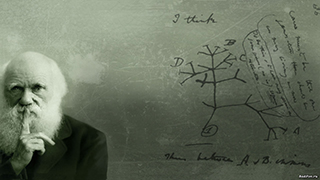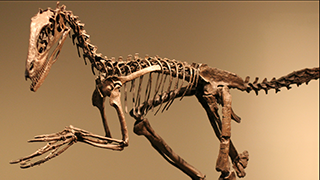MENU
The Electronic Scholarly Publishing Project: Providing world-wide, free access to classic scientific papers and other scholarly materials, since 1993.
More About: ESP | OUR CONTENT | THIS WEBSITE | WHAT'S NEW | WHAT'S HOT
ESP Legal Notifications: Terms of Use 25 Feb 2026 Updated:
ESP.ORG Terms of Use Policy
Welcome to ESP.ORG. We hope you find it useful. By accessing our servers, websites, or content therefrom (together, "ESP.ORG"), you agree to these Terms of Use ("TOU"), last updated 21 December 2016. The fine print of this TOU is given below.
LICENSE. If you are 18 or older, we grant you a limited, revocable, nonexclusive, nonassignable, nonsublicensable license to access ESP.ORG in compliance with the TOU; unlicensed access is unauthorized. You agree not to license, distribute, make derivative works, display, sell, or "frame" content from ESP.ORG. You grant us a perpetual, irrevocable, unlimited, worldwide, fully paid/sublicensable license to use, copy, perform, display, distribute, and make derivative works from content you post.
USE. You agree not to use or provide software (except for general purpose web browsers and email clients, or software expressly licensed by us) or services that interact or interoperate with ESP.ORG, e.g. for downloading, uploading, posting, flagging, emailing, search, or mobile use. Robots, spiders, scripts, scrapers, crawlers, etc. are prohibited, as are misleading, unsolicited, unlawful, and/or spam postings/email.
MODERATION. You agree we may moderate ESP.ORG access and use in our sole discretion, e.g. by blocking (e.g. IP addresses), filtering, deletion, delay, omission, verification, and/or access/account/license termination. You agree (1) not to bypass said moderation, (2) we are not liable for moderating, not moderating, or representations as to moderating, and (3) nothing we say or do waives our right to moderate, or not.
SALES. You authorize us to charge your account for ESP.ORG fees. Unless noted, fees are in US dollars; tax is additional. To the extent permitted by law, fees are nonrefundable, even for posts we remove. This is the scary part about TOU documents: all kinds of stuff can be buried in the fine print.
DISCLAIMER. MANY JURISDICTIONS HAVE LAWS PROTECTING CONSUMERS AND OTHER CONTRACT PARTIES, LIMITING THEIR ABILITY TO WAIVE CERTAIN RIGHTS AND RESPONSIBILITIES. WE RESPECT SUCH LAWS; NOTHING HEREIN SHALL WAIVE RIGHTS OR RESPONSIBILITIES THAT CANNOT BE WAIVED.
To the extent permitted by law, (1) we make no promise as to ESP.ORG, its completeness, accuracy, availability, timeliness, propriety, security or reliability; (2) your access and use are at your own risk, and ESP.ORG is provided "AS IS" and "AS AVAILABLE"; (3) we are not liable for any harm resulting from (a) user content; (b) user conduct, e.g. illegal conduct; (c) your ESP.ORG use; or (d) our representations; (4) WE AND OUR OFFICERS, DIRECTORS, EMPLOYEES ("ESP.ORG ENTITIES"), DISCLAIM ALL WARRANTIES & CONDITIONS, EXPRESS OR IMPLIED, OF MERCHANTABILITY, FITNESS FOR PARTICULAR PURPOSE, OR NON-INFRINGEMENT; (5) ESP.ORG ENTITIES ARE NOT LIABLE FOR ANY INDIRECT, INCIDENTAL, SPECIAL, CONSEQUENTIAL OR PUNITIVE DAMAGES, OR ANY LOSS (E.G. OF PROFIT, REVENUE, DATA, OR GOODWILL); (6) IN NO EVENT SHALL OUR TOTAL LIABILITY EXCEED $100 OR WHAT YOU PAID US IN THE PAST YEAR.
CLAIMS. You agree (1) any claim, cause of action or dispute ("Claim") arising out of or related to the TOU or your ESP.ORG use is governed by Washington ("WA") law regardless of your location or any conflict or choice of law principle; (2) Claims must be resolved exclusively by state or federal court in Seattle, WA (except that we may seek injunctive remedy anywhere); (3) to submit to personal jurisdiction of said courts; (4) any Claim must be filed by 1 year after it arose or be forever barred; (5) not to bring or take part in a class action against ESP.ORG Entities; (6) (except government agencies) to indemnify ESP.ORG Entities for any damage, loss, and expense (e.g. legal fees) arising from claims related to your ESP.ORG use; (7) you are liable for TOU breaches by affiliates (e.g. marketers) paid by you, directly or indirectly (e.g. through an affiliate network); and (8) to pay us for breaching or inducing others to breach the "USE" section, not as a penalty, but as a reasonable estimate of our damages (actual damages are often hard to calculate): $0.10 per server request, $1 per post, email, flag, or account created, $1 per item of PI collected, and $1000 per software distribution, capped at $25,000 per day.
MISC. Users complying with prior written licenses may access ESP.ORG thereby until authorization is terminated. Otherwise, this is the exclusive and entire agreement between us. If any TOU term is unenforceable, other terms are unaffected. If TOU translations conflict with the English version, English controls. See Privacy Policy for how we collect, use and share data.
ESP Quick Facts
ESP Origins
In the early 1990's, Robert Robbins was a faculty member at Johns Hopkins, where he directed the informatics core of GDB — the human gene-mapping database of the international human genome project. To share papers with colleagues around the world, he set up a small paper-sharing section on his personal web page. This small project evolved into The Electronic Scholarly Publishing Project.
ESP Support
In 1995, Robbins became the VP/IT of the Fred Hutchinson Cancer Research Center in Seattle, WA. Soon after arriving in Seattle, Robbins secured funding, through the ELSI component of the US Human Genome Project, to create the original ESP.ORG web site, with the formal goal of providing free, world-wide access to the literature of classical genetics.
ESP Rationale
Although the methods of molecular biology can seem almost magical to the uninitiated, the original techniques of classical genetics are readily appreciated by one and all: cross individuals that differ in some inherited trait, collect all of the progeny, score their attributes, and propose mechanisms to explain the patterns of inheritance observed.
ESP Goal
In reading the early works of classical genetics, one is drawn, almost inexorably, into ever more complex models, until molecular explanations begin to seem both necessary and natural. At that point, the tools for understanding genome research are at hand. Assisting readers reach this point was the original goal of The Electronic Scholarly Publishing Project.
ESP Usage
Usage of the site grew rapidly and has remained high. Faculty began to use the site for their assigned readings. Other on-line publishers, ranging from The New York Times to Nature referenced ESP materials in their own publications. Nobel laureates (e.g., Joshua Lederberg) regularly used the site and even wrote to suggest changes and improvements.
ESP Content
When the site began, no journals were making their early content available in digital format. As a result, ESP was obliged to digitize classic literature before it could be made available. For many important papers — such as Mendel's original paper or the first genetic map — ESP had to produce entirely new typeset versions of the works, if they were to be available in a high-quality format.
ESP Help
Early support from the DOE component of the Human Genome Project was critically important for getting the ESP project on a firm foundation. Since that funding ended (nearly 20 years ago), the project has been operated as a purely volunteer effort. Anyone wishing to assist in these efforts should send an email to Robbins.
ESP Plans
With the development of methods for adding typeset side notes to PDF files, the ESP project now plans to add annotated versions of some classical papers to its holdings. We also plan to add new reference and pedagogical material. We have already started providing regularly updated, comprehensive bibliographies to the ESP.ORG site.
ESP Picks from Around the Web (updated 28 JUL 2024 )
Old Science

Weird Science

Treating Disease with Fecal Transplantation
Fossils of miniature humans (hobbits) discovered in Indonesia
Paleontology

Dinosaur tail, complete with feathers, found preserved in amber.
Astronomy

Mysterious fast radio burst (FRB) detected in the distant universe.
Big Data & Informatics

Big Data: Buzzword or Big Deal?
Hacking the genome: Identifying anonymized human subjects using publicly available data.